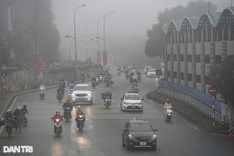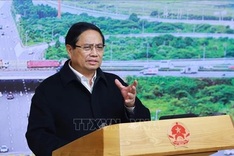Stocks plunged more than four percent in Tokyo on Monday after the yen surged in reaction to Shigeru Ishiba's election last week as the head of Japan's ruling party, which boosted expectations the Bank of Japan will continue hiking interest rates.
However, Hong Kong and Shanghai extended their surge as traders cheered more moves by Chinese authorities to revive the country's battered economy with more support measures for the crucial property sector.
Exporters were the big losers in Tokyo after the yen's spike to around 142 per dollar in reaction to Ishiba's win, which observers said would mean the central bank will likely press on with its campaign of monetary tightening.
But while Ishiba is expected to maintain many of his predecessor Fumio Kishida's policies, he has also said "there is room for raising the corporate tax", while promising to revitalise rural regions.
"Our view is that the basic economic policy philosophy will not change," said Masamichi Adachi, UBS Securities chief economist for Japan.
"More specifically, business- and market-friendly policies are likely to be maintained. Still, Ishiba is likely to pursue fiscal consolidation and monetary policy normalisation, allowing the BoJ to continue to pursue policy normalisation."
The yen held its gains Monday, dealing a blow to exporters such as Sony and Toyota, while SoftBank was also well down and leaving the Nikkei more than four percent down at the break.
Still, Hong Kong jumped more than three percent and Shanghai more than five percent soon after the open as investors continued to rush back into the beaten-down markets in reaction to China's series of economy-boosting stimulus. They later pared some of those gains.
Among the measures unveiled over the last week were interest rate cuts, easing of how much banks must keep in reserve and softer rules on buying a home.
And on Monday, three megacities -- Shanghai, Guangzhou and Shenzhen -- eased restrictions on buying homes, while Beijing's central bank said it would ask financial institutions to lower mortgage rates, as leaders battle to pull the country out of a debilitating housing slump.
Developers were among the best performers again, with Kaisa rocketing almost 60 percent at one point, Sunac jumping nearly 40 percent and Agile Group around 13 percent stronger.
Harry Murphy Cruise, an economist at Moody's Analytics, said the moves "signal growing unease about the health of China's economy".
"That officials brought forward economic discussions to this week's Politburo meeting -- rather than sticking to the December schedule -- highlights the urgency of the problem."
Elsewhere in Asia, markets were mixed, with Sydney, Wellington and Singapore rising but Seoul, Taipei, Manila and Jakarta in the red.
Wall Street provided a tepid lead, even after data showed the personal consumption expenditures index -- the Federal Reserve's preferred gauge of inflation -- slowed to 2.2 percent in August, from 2.5 percent in July.
The figures boosted hopes the central bank will announce another bumper rate cut at its next meeting, having slashed them 50 basis points earlier this month -- the first reduction since the start of the pandemic.
Oil prices edged up as traders keep a close eye on events in the Middle East amid fears of a wider conflict as Israel strikes Hezbollah targets in Lebanon, Huthi rebels in Yemen and keeps up its bombardment of Gaza.
An attack on Friday killed Hezbollah leader Hassan Nasrallah and a senior Iranian general.
Iran's Foreign Minister Abbas Araghchi said Sunday that the killing "will not go unanswered".
Tokyo stocks dive on strong yen as Hong Kong, Shanghai extend rally
Stocks plunged more than four percent in Tokyo on Monday after the yen surged in reaction to Shigeru Ishiba's election last week as the head of Japan's ruling party, which boosted expectations the Bank of Japan will continue hiking
Source: AFP




















